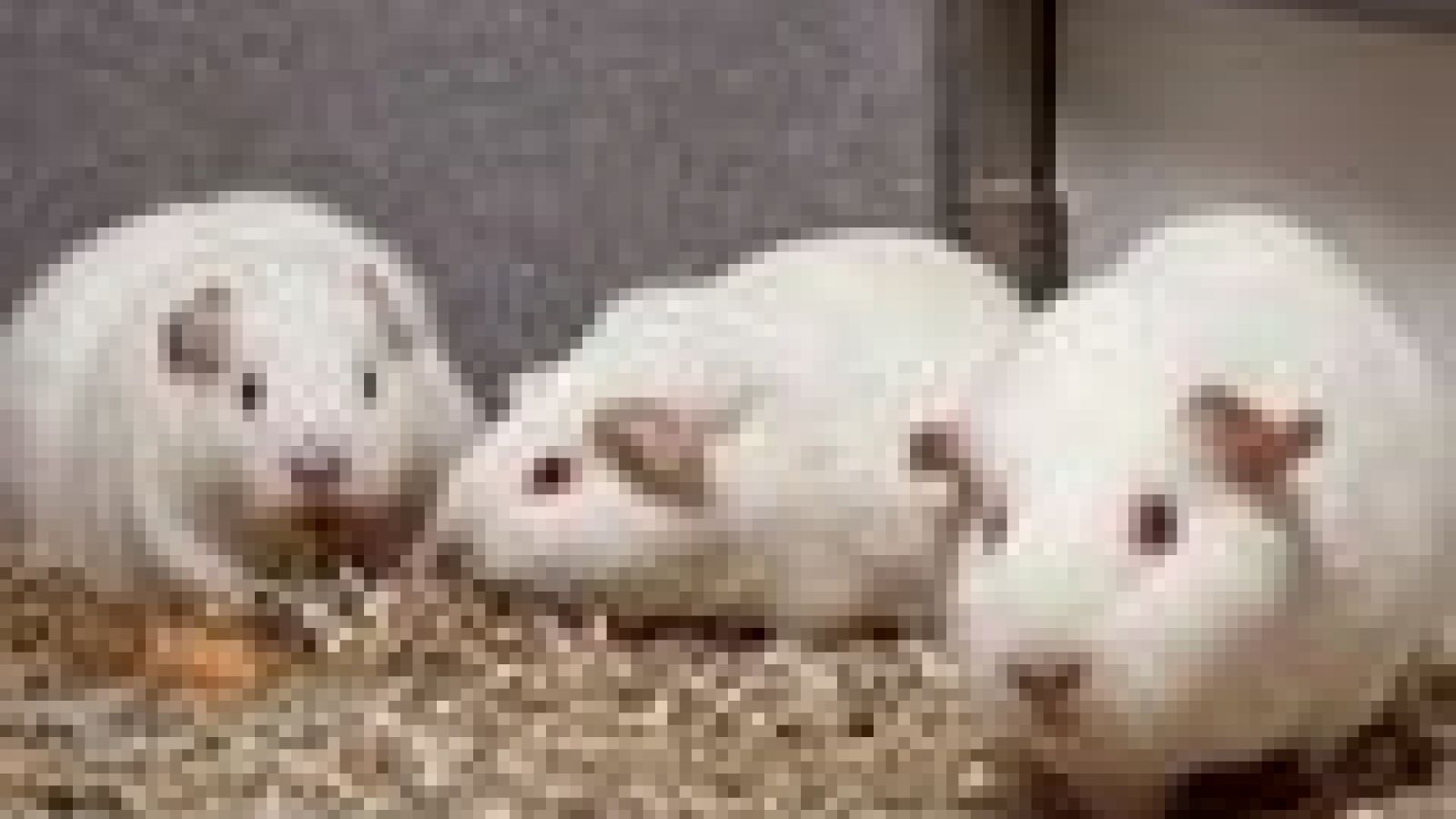
Text to go here...
 Three animal rights extremists who were imprisoned for their role in the 'Save the Newchurch Guinea Pigs' campaign – Jon Ablewhite, John Smith and Kerry Whitburn – have been released from prison. They were sentenced to 12 years in May 2006. Another activist, Josephine Mayo, was sentenced to four years imprisonment and was released in May 2008.
Three animal rights extremists who were imprisoned for their role in the 'Save the Newchurch Guinea Pigs' campaign – Jon Ablewhite, John Smith and Kerry Whitburn – have been released from prison. They were sentenced to 12 years in May 2006. Another activist, Josephine Mayo, was sentenced to four years imprisonment and was released in May 2008.
All three had pleaded guilty to charges of conspiracy to blackmail, following the notorious desecration of a grave and theft of the remains of Gladys Hammond, mother-in-law of one of the owners of Darley Oaks Farm, a family business which bred guinea pigs for research. The prosecution could not prove that the four had taken the remains, but they admitted using the desecration to put pressure on the family. In early May 2006, Staffordshire police, acting on information provided by Smith, searched some woodland and recovered Mrs Hammond's remains.
Sentencing them in 2006, the judge said that they had also threatened to desecrate the grave of the husband of the family's cleaner. In September 2006, Smith's girlfriend, Madeline Buckler, was sentenced to two years in jail for 'intimidation of people connected with an animal research organisation,' a charge introduced under the Serious and Organised Crime Act 2005. Buckler was found to have sent the farm's owners menacing letters in November 2005.
Guinea pigs are important in medical research in the study of allergies, lung diseases, nutrition, hearing and in safety testing. In the past, studies on guinea pigs led to the discovery of Vitmain C, and were used in the development of antibiotics, vaccines for diphtheria and TB, replacement heart valves, blood transfusion, kidney dialysis, anticoagulants, and asthma medicines.
Nevertheless, the use of guinea pigs in research has decreased considerably in the 12 years since the campaign against the breeder was initiated. This is largely due to scientific efforts to replace them by more benign methods in safety testing.
Last edited: 11 January 2022 14:52


